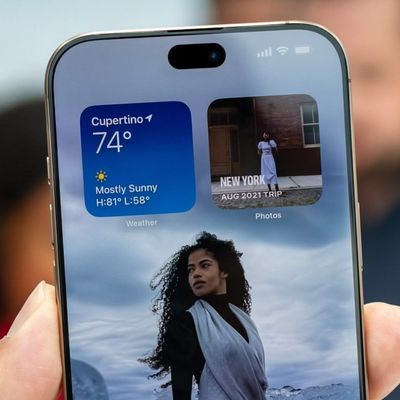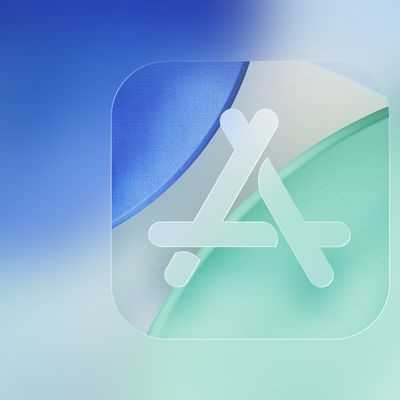Testing the New Apple Vision Pro Spatial Persona
As of this week, Apple Vision Pro users can set up a spatial Persona, which is a new version of a Persona that's designed to make it feel like you're interfacing with other people right in the same room. We thought we'd test out the spatial Persona feature to see how it works and whether it's an improvement over the regular Persona option.
Spatial Personas have a translucent background and include the head, hands, and top part of the torso to provide a more natural feel so that it seems like the people in the conversation are in the same physical room with one another. With spatial Personas, people can move about in their real world space, and that's reflected in the virtual setting. Persona location is the same for all people on a call, so if there are five participants, each one has a different location just as they would sitting together in a room.
If you look at or point to someone on the call, the other participants can see where you are looking or pointing. Voices are also directional relative to where each person is at.
Standard Personas show only a person's face and are limited to a small tile, but spatial Personas have a much more immersive feel. Apple has been improving Personas since the Vision Pro headset launched, and while there's still an uncanny valley feel to them, the visuals are much improved and overall less creepy.
Spatial Personas can be used for watching movies and TV shows together, FaceTime and other video calls, using apps like Freeform, playing games, and more.
As of right now, spatial Personas are live in visionOS in a beta capacity, with the visionOS 1.1 update required. Spatial Personas work with up to five participants.
Popular Stories
Apple is planning to debut a high-end secondary version of AirPods Pro 3 this year, sitting in the lineup alongside the current model, reports suggest.
Back in September 2025, supply chain analyst Ming-Chi Kuo reported that Apple is planning to introduce a successor to the AirPods Pro 3 in 2026. This would be somewhat unusual since Apple normally waits around three years to make major...
Over the last few months, rumors around the iPhone 18 Pro's front-panel design have been conflicted, with some supply-chain leaks pointing to under-display Face ID, reports suggesting a top-left hole-punch camera, and debate over whether the familiar Dynamic Island will shrink, shift, or disappear entirely.
Today, Weibo-based leaker Instant Digital shared new details that appear to clarify the ...
iOS 27 is still many months away, but there are already plenty of rumors about new features that will be included in the software update.
The first beta of iOS 27 will be released during WWDC 2026 in June, and the update should be released to all users with a compatible iPhone in September.
Bloomberg's Mark Gurman said that iOS 27 will be similar to Mac OS X Snow Leopard, in the sense...
MacBook Pro availability is tightening on Apple's online store, with select configurations facing up to a two-month delivery timeframe in the United States.
A few 14-inch and 16-inch MacBook Pro configurations with an M4 Pro chip are not facing any shipping delay, but estimated delivery dates for many configurations with an M4 Max chip range from February 6 to February 24 or even later. At...
Apple's App Store, iTunes Store, and Apple TV service are experiencing an outage at the current time, according to Apple's System Status page.
Apple says that some users may be experiencing issues with the App Store and iTunes Store. Apple also says some users may be seeing intermittent issues with Apple TV. The Apple TV Channels feature is down too, and users may be unable to access some...





















